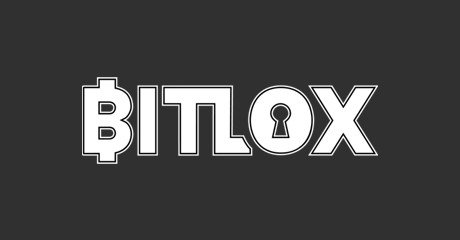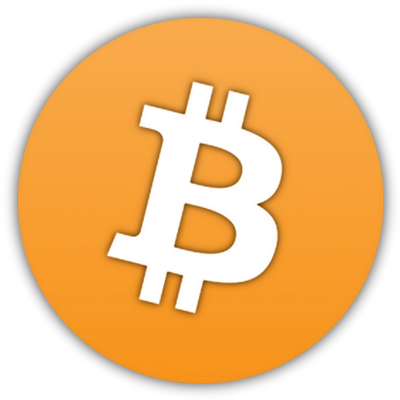|
185
- Bitcoin (BTC), Basic Attention Token (BAT), Ethereum Classic (ETC), VeChain (VET), OmiseGO (OMG), Qtum (QTUM), ICON (ICX), Bitcoin Gold (BTG), Bytom (BTM), Populous (PPT), Wanchain (WAN), DigixDAO (DGD), Waves (WAVES), Zilliqa (ZIL), RChain (RHOC), Aeternity (AE), Status (SNT), 0x (ZRX), Loopring (LRC), Aion (AION), Golem (GNT), IOST (IOST), KuCoin Shares (KCS), Waltonchain (WTC), aelf (ELF), Centrality (CENNZ), Dragonchain (DRGN), Substratum (SUB), QASH (QASH), Veritaseum (VERI), Mithril (MITH), Gas (GAS), Elastos (ELA), Voyager Token (VGX), FunFair (FUN), Nebulas (NAS), Nucleus Vision (NCASH), Revain (REV), WAX (WAX), SALT (SALT), Power Ledger (POWR), Storm (STORM), Mixin (XIN), Enigma (ENG), Storj (STORJ), TenX (PAY), Cindicator (CND), Dentacoin (DCN), Kin (KIN), Civic (CVC), Iconomi (ICN), SingularityNET (AGI), Matrix AI Network (MAN), POA Network (POA), GameCredits (GAME), Dent (DENT), Quantstamp (QSP), Gnosis (GNO), iExec RLC (RLC), Decentraland (MANA), Polymath (POLY), Cube (CUBEAUTO), Po.et (POE), Genaro Network (GNX), Loom Network (LOOM), NULS (NULS), Dynamic Trading Rights (DTR), Time New Bank (TNB), Aragon (ANT), Enjin Coin (ENJ), High Performance Blockchain (HPB), Raiden Network Token (RDN), Metal (MTL), Santiment Network Token (SAN), Pundi X (NPXS), SIRIN LABS Token (SRN), Dropil (DROP), Bluzelle (BLZ), SmartMesh (SMT), Genesis Vision (GVT), THETA (THETA), Credits (CS), Pillar (PLR), Paypex (PAYX), Gifto (GTO), PayPie (PPP), BLOCKv (VEE), AirSwap (AST), DEW (DEW), Bibox Token (BIX), OST (OST), ETHLend (LEND), IoT Chain (ITC), DATA (DTA), Scry.info (DDD), Ruff (RUFF), Ripio Credit Network (RCN), SONM (SNM), Quantum Resistant Ledger (QRL), AdEx (ADX), SophiaTX (SPHTX), SingularDTV (SNGLS), Eidoo (EDO), UTRUST (UTK), Ambrosus (AMB), Edgeless (EDG), EvenCoin (EVN), WePower (WPR), SpankChain (SPANK), CRYPTO20 (C20), Telcoin (TEL), Crypterium (CRPT), Oyster Pearl (PRL), MediShares (MDS), AppCoins (APPC), USD Coin (USDC), Binance Coin (BNB), Bitcoin Cash (BCH), EOS (EOS), Ethereum (ETH), Litecoin (LTC), Tether (USDT), Tron (TRX), LKSCOIN, Polkadot (DOT), renBTC (RENBTC), NXM (NXM), Terra (LUNA), Ampleforth (AMPL), xDai (STAKE), Nectar (NEC), sUSD (SUSD), Zap (ZAP), Monolith (TKN), Metronome (MET), YAM v1 (YAM), bitCNY (BITCNY), Hydro Protocol (HOT), Auctus (AUC), Loopring [NEO] (LRN), Compound Dai (CDAI), Compound SAI (CSAI), Compound USD Coin (CUSDC), pTokens BTC (PBTC), Compound Ether (CETH), PieDAO BTC++ (BTC++), Compound Basic Attention Token (CBAT), Compound 0x (CZRX), Compound Wrapped BTC (CWBTC), Compound USDT (CUSDT), Compound Augur (CREP), sBTC (SBTC), XinFin Network (XDC), Crypto.com Coin (CRO), UNUS SED LEO (LEO), Huobi Token (HT), Binance USD (BUSD), Celsius (CEL), Algorand (ALGO), OKB (OKB), TrueUSD (TUSD), HUSD (HUSD), Paxos Standard (PAX), Ocean Protocol (OCEAN), ABBC Coin (ABBC), Energy Web Token (EWT), Quant (QNT), ZB Token (ZB), SwissBorg (CHSB), DxChain Token (DX), The Midas Touch Gold (TMTG), IoTeX (IOTX), RSK Infrastructure Framework (RIF), TomoChain (TOMO), Kleros (PNK), Chiliz (CHZ), Uquid Coin (UQC), Ankr (ANKR), Velas (VLX), IRISnet (IRIS), Energi (NRG), Unibright (UBT), WAX (WAXP), Fantom (FTM), NAGA Coin
|
0
|
| About |
BitLox è un portafoglio hardware. Ciò significa che lo userai per archiviare le tue chiavi private di criptovaluta in un ambiente offline sicuro lontano dal rischio rappresentato dagli hacker. La società è in circolazione almeno dal 2014 e ha sede a Hong Kong (BitLox Limited).
|
Il portafoglio Schildbach BTC risale al 2011 quando è stato sviluppato da Andreas Schildbach. Il portafoglio funziona per il sistema operativo Android ed è di diritto considerato come il primo portafoglio mobile Bitcoin.
|
| Data di lancio |
Data di lancio
2014
|
Data di lancio
2011
|
| Località: |
Località:
Hong Kong
|
Località:
International
|
| Lingue |
Lingue
English, Spanish, Russian, Chinese
|
Lingue
English
|
| Tipo di portafoglio |
Tipo di portafoglio
Hardware wallet
|
Tipo di portafoglio
Software wallet
|
| Tipo di storage |
Tipo di storage
Cold wallet
|
Tipo di storage
Hot / Cold wallet
|
| Chiavi private |
Chiavi private
Disponibile
|
Chiavi private
Disponibile
|
| Monete disponibili |
Monete disponibili
185
- Bitcoin (BTC), Basic Attention Token (BAT), Ethereum Classic (ETC), VeChain (VET), OmiseGO (OMG), Qtum (QTUM), ICON (ICX), Bitcoin Gold (BTG), Bytom (BTM), Populous (PPT), Wanchain (WAN), DigixDAO (DGD), Waves (WAVES), Zilliqa (ZIL), RChain (RHOC), Aeternity (AE), Status (SNT), 0x (ZRX), Loopring (LRC), Aion (AION), Golem (GNT), IOST (IOST), KuCoin Shares (KCS), Waltonchain (WTC), aelf (ELF), Centrality (CENNZ), Dragonchain (DRGN), Substratum (SUB), QASH (QASH), Veritaseum (VERI), Mithril (MITH), Gas (GAS), Elastos (ELA), Voyager Token (VGX), FunFair (FUN), Nebulas (NAS), Nucleus Vision (NCASH), Revain (REV), WAX (WAX), SALT (SALT), Power Ledger (POWR), Storm (STORM), Mixin (XIN), Enigma (ENG), Storj (STORJ), TenX (PAY), Cindicator (CND), Dentacoin (DCN), Kin (KIN), Civic (CVC), Iconomi (ICN), SingularityNET (AGI), Matrix AI Network (MAN), POA Network (POA), GameCredits (GAME), Dent (DENT), Quantstamp (QSP), Gnosis (GNO), iExec RLC (RLC), Decentraland (MANA), Polymath (POLY), Cube (CUBEAUTO), Po.et (POE), Genaro Network (GNX), Loom Network (LOOM), NULS (NULS), Dynamic Trading Rights (DTR), Time New Bank (TNB), Aragon (ANT), Enjin Coin (ENJ), High Performance Blockchain (HPB), Raiden Network Token (RDN), Metal (MTL), Santiment Network Token (SAN), Pundi X (NPXS), SIRIN LABS Token (SRN), Dropil (DROP), Bluzelle (BLZ), SmartMesh (SMT), Genesis Vision (GVT), THETA (THETA), Credits (CS), Pillar (PLR), Paypex (PAYX), Gifto (GTO), PayPie (PPP), BLOCKv (VEE), AirSwap (AST), DEW (DEW), Bibox Token (BIX), OST (OST), ETHLend (LEND), IoT Chain (ITC), DATA (DTA), Scry.info (DDD), Ruff (RUFF), Ripio Credit Network (RCN), SONM (SNM), Quantum Resistant Ledger (QRL), AdEx (ADX), SophiaTX (SPHTX), SingularDTV (SNGLS), Eidoo (EDO), UTRUST (UTK), Ambrosus (AMB), Edgeless (EDG), EvenCoin (EVN), WePower (WPR), SpankChain (SPANK), CRYPTO20 (C20), Telcoin (TEL), Crypterium (CRPT), Oyster Pearl (PRL), MediShares (MDS), AppCoins (APPC), USD Coin (USDC), Binance Coin (BNB), Bitcoin Cash (BCH), EOS (EOS), Ethereum (ETH), Litecoin (LTC), Tether (USDT), Tron (TRX), LKSCOIN, Polkadot (DOT), renBTC (RENBTC), NXM (NXM), Terra (LUNA), Ampleforth (AMPL), xDai (STAKE), Nectar (NEC), sUSD (SUSD), Zap (ZAP), Monolith (TKN), Metronome (MET), YAM v1 (YAM), bitCNY (BITCNY), Hydro Protocol (HOT), Auctus (AUC), Loopring [NEO] (LRN), Compound Dai (CDAI), Compound SAI (CSAI), Compound USD Coin (CUSDC), pTokens BTC (PBTC), Compound Ether (CETH), PieDAO BTC++ (BTC++), Compound Basic Attention Token (CBAT), Compound 0x (CZRX), Compound Wrapped BTC (CWBTC), Compound USDT (CUSDT), Compound Augur (CREP), sBTC (SBTC), XinFin Network (XDC), Crypto.com Coin (CRO), UNUS SED LEO (LEO), Huobi Token (HT), Binance USD (BUSD), Celsius (CEL), Algorand (ALGO), OKB (OKB), TrueUSD (TUSD), HUSD (HUSD), Paxos Standard (PAX), Ocean Protocol (OCEAN), ABBC Coin (ABBC), Energy Web Token (EWT), Quant (QNT), ZB Token (ZB), SwissBorg (CHSB), DxChain Token (DX), The Midas Touch Gold (TMTG), IoTeX (IOTX), RSK Infrastructure Framework (RIF), TomoChain (TOMO), Kleros (PNK), Chiliz (CHZ), Uquid Coin (UQC), Ankr (ANKR), Velas (VLX), IRISnet (IRIS), Energi (NRG), Unibright (UBT), WAX (WAXP), Fantom (FTM), NAGA Coin
|
Monete disponibili
0
|
| Sicurezza |
Sicurezza
Nessun dato
|
Sicurezza
Personal
|
| Anonimità |
Anonimità
Nessun dato
|
Anonimità
Medium
|
| Facilità di uso |
Facilità di uso
Nessun dato
|
Facilità di uso
Average
|
| Puoi connettere la carta |
Puoi connettere la carta
Nessun dato
|
Puoi connettere la carta
no
|
| Ha la possibilità di trading |
Ha la possibilità di trading
Nessun dato
|
Ha la possibilità di trading
Nessun dato
|
| Ha i voucher e offerte |
Ha i voucher e offerte
Nessun dato
|
Ha i voucher e offerte
Nessun dato
|
| Caratteristiche |
Caratteristiche
Nessun dato
|
Caratteristiche
Open Source
|
La valutazione degli utenti di Bitlox è 4, basata sulle recensioni degli utenti di 1. La valutazione degli utenti dell'azienda Schildbach BTC Wallet è 4.7, basata sulle recensioni degli utenti di 3.
We also calculate the special Cryptogeek TrustScore based on the characteristics of each wallet.

